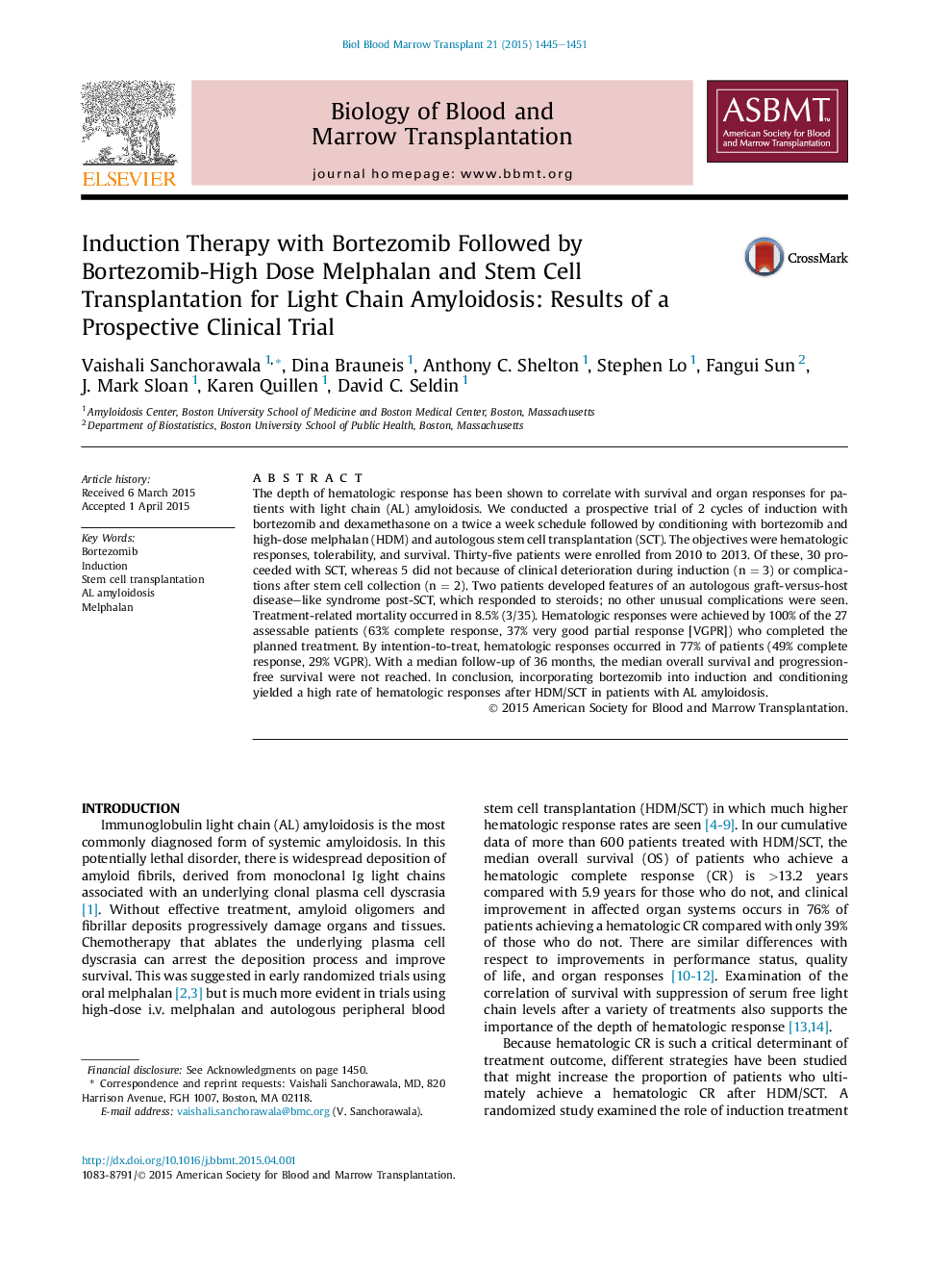| Article ID | Journal | Published Year | Pages | File Type |
|---|---|---|---|---|
| 8431364 | Biology of Blood and Marrow Transplantation | 2015 | 7 Pages |
Abstract
The depth of hematologic response has been shown to correlate with survival and organ responses for patients with light chain (AL) amyloidosis. We conducted a prospective trial of 2 cycles of induction with bortezomib and dexamethasone on a twice a week schedule followed by conditioning with bortezomib and high-dose melphalan (HDM) and autologous stem cell transplantation (SCT). The objectives were hematologic responses, tolerability, and survival. Thirty-five patients were enrolled from 2010 to 2013. Of these, 30 proceeded with SCT, whereas 5 did not because of clinical deterioration during induction (n = 3) or complications after stem cell collection (n = 2). Two patients developed features of an autologous graft-versus-host disease-like syndrome post-SCT, which responded to steroids; no other unusual complications were seen. Treatment-related mortality occurred in 8.5% (3/35). Hematologic responses were achieved by 100% of the 27 assessable patients (63% complete response, 37% very good partial response [VGPR]) who completed the planned treatment. By intention-to-treat, hematologic responses occurred in 77% of patients (49% complete response, 29% VGPR). With a median follow-up of 36 months, the median overall survival and progression-free survival were not reached. In conclusion, incorporating bortezomib into induction and conditioning yielded a high rate of hematologic responses after HDM/SCT in patients with AL amyloidosis.
Related Topics
Life Sciences
Biochemistry, Genetics and Molecular Biology
Cancer Research
Authors
Vaishali Sanchorawala, Dina Brauneis, Anthony C. Shelton, Stephen Lo, Fangui Sun, J. Mark Sloan, Karen Quillen, David C. Seldin,
